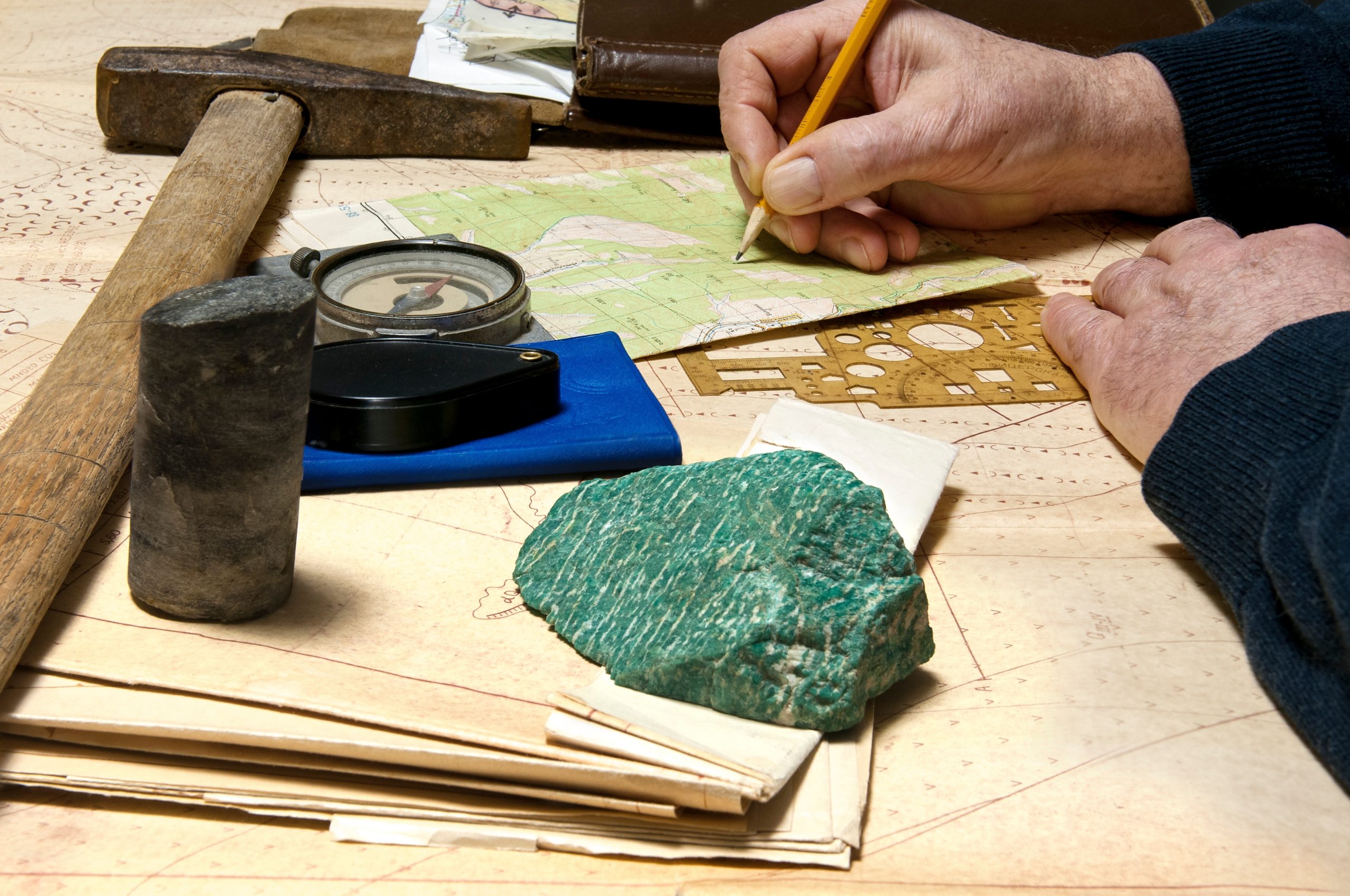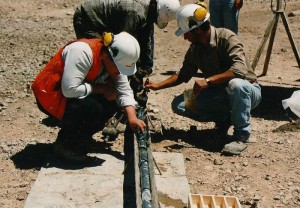When deciding on a major, you consider not only what tasks you’re good at and what work you enjoy doing. You also need to look the job outlook and salary of potential careers. Studying science in college is a good choice for many students, and using that science degree to become a senior geologist is one way graduates can maximize earning potential. Senior geologist is among the top paying careers for college graduates who majored in physical and biological science. Experienced professionals in this field earn a median salary of $82,000 per year. As the “senior” portion of the job title implies, senior geologist is a high-level position that requires a college degree and years of work experience.
Choosing the Right Major for a Geology Career
Geologists study the Earth’s history, processes and materials, specifically in regards to rock formation. By studying different types of rocks and minerals, these scientists can learn about the Earth’s past and what’s happening in the present. They can even use this information to understand how the Earth’s surface and interior could change in the future. A geologist is responsible for not only knowing about rocks, but being able to:
- design and conduct research and field studies
- evaluate data and samples
- summarize their findings in written documents and oral presentations
Geologists need a wide range of knowledge and skills, so choosing an undergraduate college major that will provide them with the right education is essential. Degree programs in geosciences or geology are among the most popular for aspiring geologists and are often favored by employers. But they aren’t the only options. According to the United States Bureau of Labor Statistics (BLS), students can also major in:
- biology
- chemistry
- physics
- engineering
- mathematics
- computer science
A student who chooses not to major in geology or geosciences should take as many geology courses as possible, including:
- structural geology
- mineralogy
- petrology
Courses in life sciences and computer science are also valuable. Students can get a head start on attaining the real-world experience through:
- internships
- laboratory research
- field studies
Senior-Level Requirements
Of course, graduates don’t become senior geologists straight out of college. Once they have earned a bachelor’s degree, they can begin working in entry-level geology positions. Most senior geologists have worked in the field for at least five years before advancing to a high-level position. They have demonstrated their skills, knowledge and dedication during that time. Candidates who aspire to become senior-level geologists can help themselves stand out by:
- seeking licensure
- taking on challenging job responsibilities
- earning an advanced degree, like a Ph.D
Becoming a senior geologist has many benefits, like:
- a large annual salary
- the prestige of a high-level position
- the opportunity to make contributions to the geosciences
Though candidates must invest years studying and working in the profession before moving up to this position, they often find that the perks are well worth the time and effort.
Related Resources:

